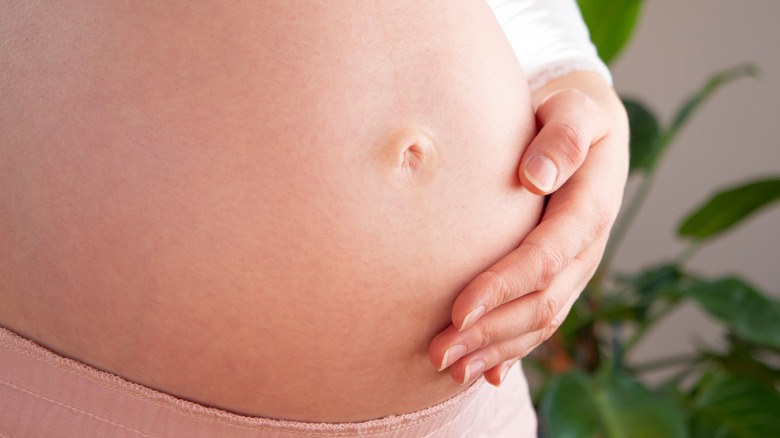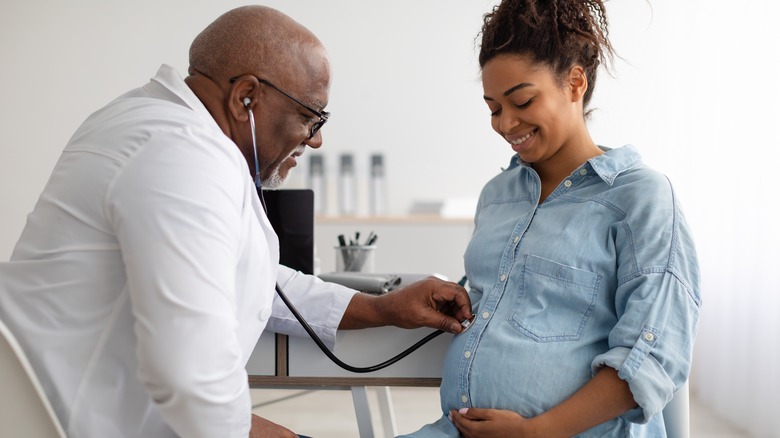What Causes Your Belly Button To Hurt During Pregnancy?
While uncomfortable, belly button pain experienced during pregnancy is generally not cause for concern. Commonly occurring during the second or third trimester, belly button pain is often the result of the natural progressive growth of the uterus (via Medical News Today). Starting out within the pelvis, the uterus will eventually expand to occupy the space from your pubic region to below the ribcage. All that pressure placed on the abdomen can give way to a painful, itchy belly button.
Additionally, the stretching that occurs both internally and externally during pregnancy can also influence belly button pain. Gynecologist Kim Langdon explains, telling Romper, "The belly button has an internal attachment to the top of the bladder. So when the abdomen grows upward and outward, the tissue can feel stretch."
Along with these internal stretching sensations, Healthline notes that our skin and muscles also experience stretching during pregnancy. Combined, the belly button gets the brunt of the discomfort that can accompany this physical growth.
When to reach out to your doctor
In some cases, belly button pain can occur during pregnancy when the belly button pops (via Healthline). While the belly button does not physically burst, a popped belly button refers to when a previously inward belly button now sticks out, taking on the appearance of an "outie" belly button. Dr. Langdon tells Romper that this can cause the inside skin of the belly button to become sensitive, stating, "The inner part of the belly button can become exposed to the air and become a bit more irritated."
In rare cases, belly button pain during pregnancy could be an indication of a health condition known as an umbilical hernia, in which the bowel moves up into the umbilical region from excessive pressure (via Medical News Today). In this event, bulging, swelling, or vomiting may also occur, according to Healthline. Surgical treatment is not always necessary, but may be required if the bowel is not getting adequate blood flow. If your belly button pain is accompanied by fever, nausea, cramping, blood in the stool, tenderness, or if the belly button area becomes physically hot or very painful, be sure to see your doctor (via Romper).
Lastly, belly button discomfort can also be a sign of your baby's arrival. Fertility doctor Cindy M. Duke tells Romper that belly button pain can occur when going into labor, indicating that your baby is on the way.


